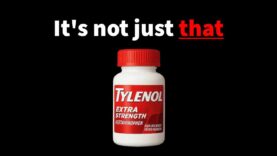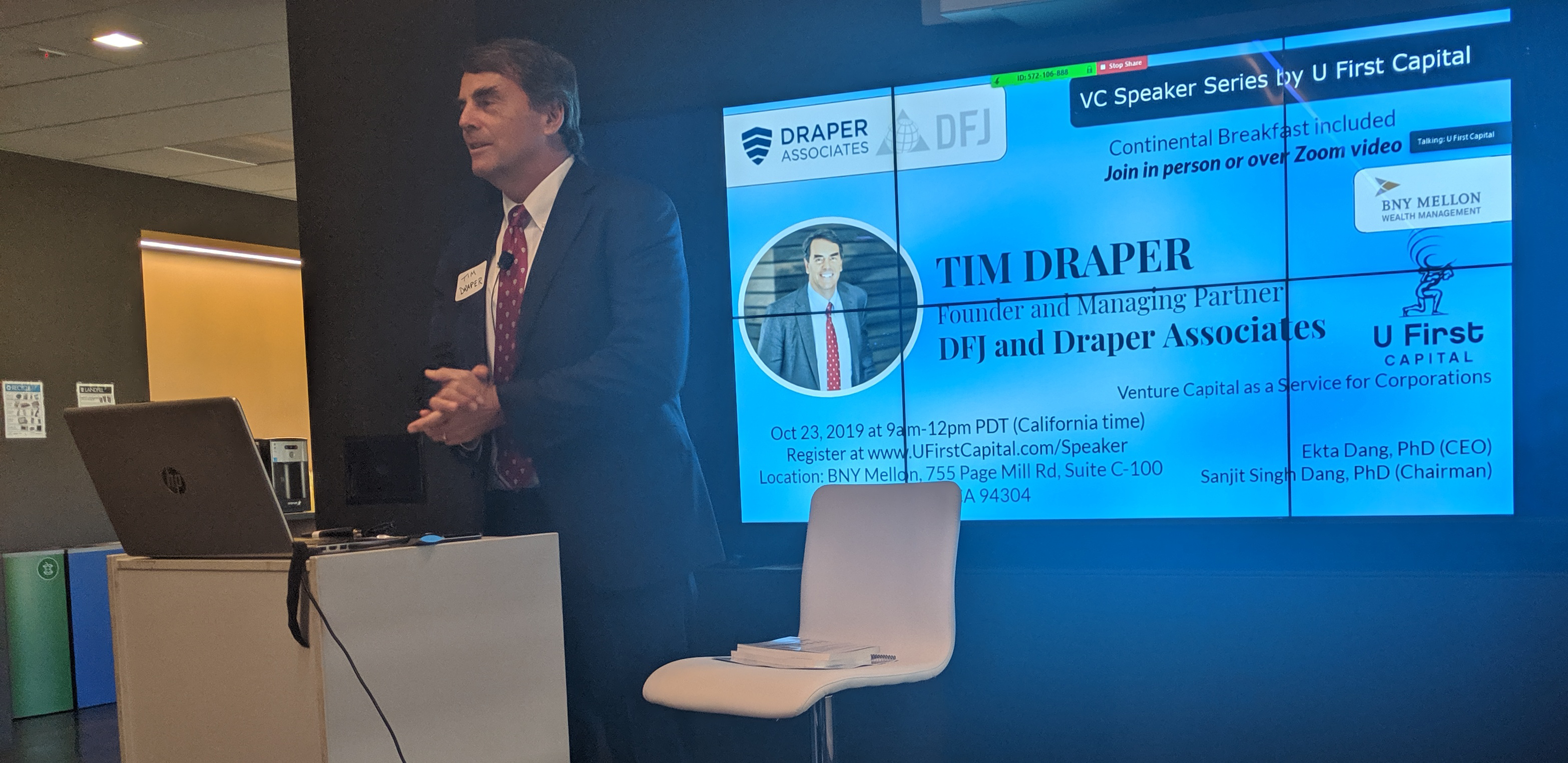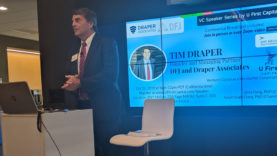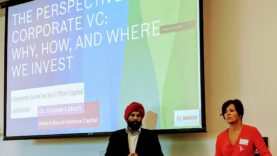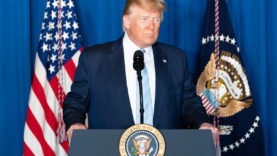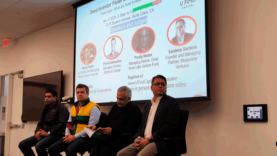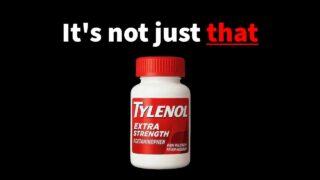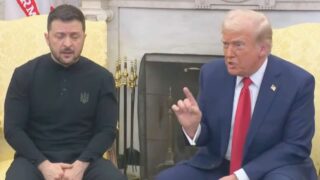Tim Draper predicts job loss, global overhaul in healthcare, banking, real estate, and governments
He backed the autonomous driving startup after almost crashing in a self-driving vehicle. He turned down Google and Netflix, which he regrets, but nevertheless has a stellar record of successes, including Hotmail, Skype, Tesla, SpaceX, AngelList, SolarCity, Ring, Twitter, DocuSign, Coinbase, Robinhood, Ancestry.com, Twitch.tv, Cruise Automation, Focus Media, as well as the biggest Chinese search engine, Baidu. One of the most successful venture capitalists in the world and one of the most influential people in Silicon Valley, Tim Draper spoke at the most recent VC Speaker Series event held by U First Capital in Palo Alto, CA.
As Facebook CEO Mark Zuckerberg was testifying before the Congress trying to defend Facebook Libra amidst massive scrutiny and ongoing investigations in 47 states and District of Columbia, cryptocurrencies and blockchain have been red hot topics at the event today.
Back in 2014, Draper won a U.S. Marshals Service auction of bitcoins seized from the Silk Road marketplace shut down by the FBI. One of the most prominent blockchain and crypto advocates worldwide, he doesn’t share U.S. government concerns regarding crypto. Our world is rapidly changing, and governments just have trouble to keep up, Draper says. As he points out, if the government is so anxious about something that means it’s huge.
Among the industries that are going to be overhauled completely, Draper outlined health insurance and healthcare, banking, real estate, and governments themselves. In health insurance, there are currently way too many parts that stand between you and your healthcare coverage, Draper noted. Blockchain-based data powered by AI will simplify and optimize the process. In fact, in one of the tests Draper mentioned, AI analysis outperformed a doctor by 10 points in a patient’s diagnosis test, where a doctor got around 75, and AI – around 85 on the test. When AI analysis was combined with the one performed by a doctor, the result went up to 91. According to Draper, AI-powered medical tests will be available at little to no cost to everyone in the nearest future and, additionally to storing and analyzing patient’s information saved in the cloud, it will cause a complete overhaul in the healthcare industry.
Blockchain can also transform and simplify title registration in real estate, as it allows to safeguard ownership information and ensure the records will not be altered. Blockchain has a perfect history or every piece of record, Draper emphasized, and therefore cryptocurrency is unlikely to be used by criminals who would rather prefer untraceable cash.
“Governments are very nervous about the new world, but it will be a lot more peaceful and wealthier,” he noted.
In the nearest future, Draper plans to open a fund in Bitcoin and use smart contracts instead of paperwork. As soon as smart contracts are implemented, accountants, bookkeepers, and auditors will no longer be needed in their current capacity and, according to Draper, once that happens, these professionals would have to provide a better, more accurate and diligent service, thinking creatively in order to stay competitive.

Photo Credit: LiveFEED
“I take Bitcoin for rent, tuition, and wanted to get it for selling my house, too, but the broker wouldn’t let me!” he laughed.
According to Draper, his “investment portfolio looks like the UN,” and he enjoys working with people from different backgrounds.
“I invest completely blind. I just say – how good is this? Is this person really gonna be driven to make it happen? In fact, in the last ten investments we made five were female entrepreneurs, so we are very proud.”

The main thing that Draper sees in common among all successful startups is their attention and love for the customer.
“If they figure out how to delight their customer, they’re onto something. So if you really wanna build a great business, you do need to delight the customer and make them as happy as possible. And if you really wanna make your business grow quickly, you need to turn your customer into your salesman. You want them to be so excited about it so that they wanna spread it.”
However, even for Tim Draper, the road to success has not always been a bed of roses.
“Most of my regrets are failures to act, when I didn’t do something. I made a couple of huge mistakes. One was Netflix, when Reed Hastings came to me and said he was going to create a business by shipping DVDs to people’s houses I said this was never going to be working – we would be streaming in two years, and he said people are not ready for streaming yet, but they will be. Another big mistake I made was not backing LinkedIn because I thought that people we all want to reach are not going to want to be reached, and I was wrong completely. I can blame my partners for talking me out of Google… I got outbid for Facebook by somebody I told about Facebook!”
Despite several bumps on the road, Draper refers to his venture career as an amazing life of excitement and drive, meeting some of the most extraordinary people, traveling all around the world.
According to Draper, freedom of speech and freedom of the press are the most powerful things worldwide right now.
“Freedom of speech is going global, and I think this is where the press is most valuable.”
As one of the arguments Mark Zuckerberg brought up at his testimony on the Hill is the fact that China is currently working on its own cryptocurrency and Libra is needed to offset that.
“The U.S. is moving way too slowly, and that raises the question if there’s still the open government,” Draper noted.
The afternoon was filled with the vibe of innovation and opportunity, many topics were raised and argued. If Estonia has already created an e-government, where most public services are available online 24/7, saving 1,407 years of working annually, what stops the U.S. from doing just the same, considering the budget crisis? Why not use blockchain for digital voting instead of voting booths tainted by the history of corruption? With most of the money being digitalized, should the government scrutinize cryptocurrencies, or just invent their own? And indeed, do we still have the open government?
If you haven’t subscribed to our YouTube channel yet, you can do so by clicking here. Do you have anything else to add or share? Sign up for a free account, and post directly to our LiveFEED!


